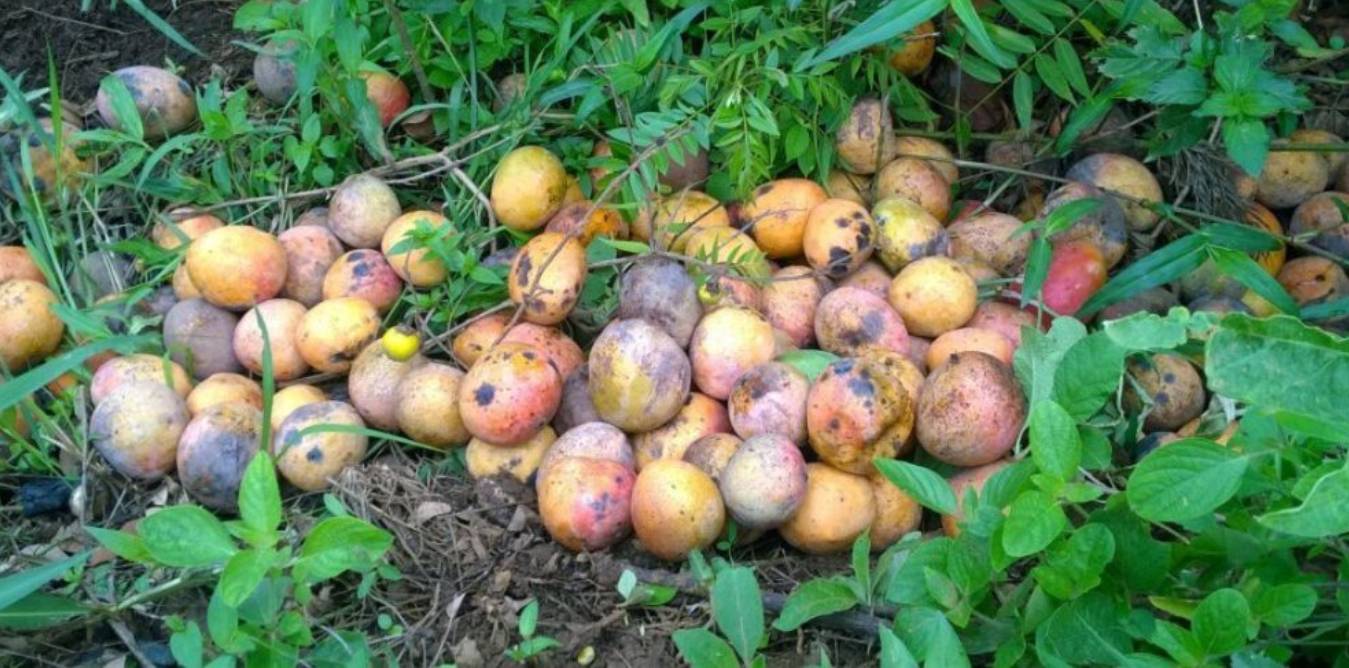Reducing Post-Harvest Loss of Mangoes in Kenya

From 2017 until 2020 Farm Radio International (FRI) has been implementing the Reducing Post-Harvest Loss through Social and Behaviour Change Communication (RePHL) project, funded by the Rockefeller Foundation as part of their wider YieldWise initiative.
The ultimate objective of the RePHL project is to enable small-scale farming families in Kenya, Tanzania and Nigeria to reduce their vulnerability to post-harvest losses, thereby increasing household nutrition and income, by deploying three proven social and behavior change communication methodologies (radio, farmer-led videos and reality tv) that will:
- Increase farmers’ awareness and knowledge of methods to reduce post-harvest losses
- Increase farmers’ application of proven post-harvest management technologies and solutions.
In Kenya the focus is on reducing post-harvest loss in mangoes, in Nigeria the focus is on reducing post-harvest loss in tomatoes, and in Tanzania the focus is on reducing post-harvest loss in maize.Towards this, Farm Radio International engaged Kenya Community Media Network (KCOMNET) to carry out a RePHL Formative Research through focus group discussions (FGDs) with mango farmers in Kenya. A total of 16 focus group discussions were conducted in Murangá and Machakos covering 4 locations in each county. Each location had two focus groups-one with men and one with women. A total of 57 farmers were engaged, 34 women and 23 men and this included youth under 35 years.
Most farmers felt that when they reduce post-harvest loss they sold more mangoes, but most of their produce still lack market and many mangoes still spoil on the farm. All farmers were aware of post-harvest losses and considered them an issue.
The major cause of post- harvest losses was attributed to oversupply of mangoes in the country with insufficient markets to absorb them:
We are now selling 15-20% of our mangoes. For the past two years, most of us have experienced 75-80% loss of mangoes. Our mangoes were bought at athrow away price this season…..at a big loss to us (FGD participant)
Farmers also attributed losses to low prices, competition from large-scale and corporate producers who had advantages on export markets, cutting fruits too soon from the trees, pests and diseases, exploitation from middle-men and brokers and pesticide use making fruits unsuitable for export markets. One farmer noted that “we no longer export mangoes like we used to “, highlighting that they are unable to participate in export markets and tying to their major concern of insufficient markets to meet supply.
Farmers felt that there needed to be a combination of solutions to reduce PHL and some have adopted use of fruit fly traps, crates and tarps for harvesting, but they feel that having markets for their product was imperative.
All farmers expressed a keen interest in participating in community/group showings of programs if they were made available.
Farmers also voiced interest in programs that feature local farmers and that dig deep on the local issues engaging farmers experiences, discussing local challenges and acknowledging local values.


